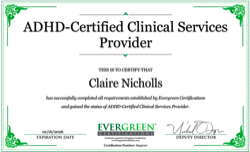COLLABORATIVE APPROACH TO PARENTING CHALLENGES:
Managing Finances: Involve your emerging adult in financial discussions and decision-making. Teach them budgeting skills, help them understand financial responsibilities, and guide them through creating a realistic financial plan. Offer ongoing support while gradually shifting the responsibility for managing their finances onto them.
Developing Time Management Skills: Collaborate with your emerging adult to create a structured schedule that balances their personal, educational, and professional commitments. Use visual aids, calendars, or digital apps to assist with organization. Encourage them to prioritize tasks and allocate time effectively while providing guidance and support as needed.
Navigating Employment or Education Choices: Support your emerging adult in exploring different employment or education opportunities that align with their interests and strengths. Provide guidance in evaluating potential choices, considering accommodations, and setting achievable goals. Encourage open dialogue about any challenges they may encounter.
Addressing Comorbid Conditions: In addition to ADHD, many emerging adults may experience comorbid conditions such as depression and anxiety. It is crucial to address these co-occurring conditions alongside ADHD. Seek professional support from mental health providers who can help assess, diagnose, and formulate appropriate treatment plans tailored to each individual's needs.
ADHD IN EMERGING ADULTS
Parenting a 20-something-year-olds with ADHD can be a unique challenge, as they navigate the transition to adulthood. Adopting a collaborative approach to parenting and addressing the specific challenges that arise during this phase can empower both parents and emerging adults with ADHD. This article aims to provide guidance by highlighting the importance of partnership and offloading responsibilities in a progressive model. By fostering collaboration, parents can enhance their relationship with their emerging adult and assist them in achieving success in their journey to adulthood.
Acknowledge Challenges and Open Communication: Recognize and acknowledge the difficulties that both parents and emerging adults face during this transition period. It's essential to maintain open and honest communication with your child about their ADHD, including its impact on their daily life and future goals. Create a safe space for them to express their concerns and frustrations while encouraging mutual understanding.
Shared Decision-making: Involve your emerging adult in decision-making processes that affect their lives. Encourage them to actively participate in discussions about their education, career choices, and personal goals. By including them in decision-making, you promote a sense of autonomy, responsibility, and collaboration.
Define Roles and Responsibilities: Establish clear roles and responsibilities for both parents and emerging adults. Identify areas where your child can take the lead and offer them opportunities to develop skills related to these responsibilities. This collaborative approach encourages accountability, self-efficacy, and the development of crucial life skills.
Gradual Offloading of Responsibilities: To assist your emerging adult in developing independence, gradually offload responsibilities onto them. Start by assigning manageable tasks related to their daily routine or chores. As they demonstrate competence, increase their level of responsibility gradually. This progressive model provides a supportive environment for growth while preventing overwhelming pressure.
Seek External Support: Recognize when additional support may be beneficial. Collaborate with professionals, such as therapists or ADHD coaches, who can provide guidance to both parents and emerging adults in managing the challenges associated with ADHD and the transition to adulthood. External support can offer valuable tools and strategies for navigating this phase successfully.
Encourage Self-Advocacy Skills: Empower your emerging adult to become self-advocates by teaching them how to articulate their needs, set boundaries, and seek appropriate accommodations when necessary. By fostering self-awareness, self-advocacy skills, and resourcefulness, you equip them to navigate various settings, such as educational institutions or workplaces.

